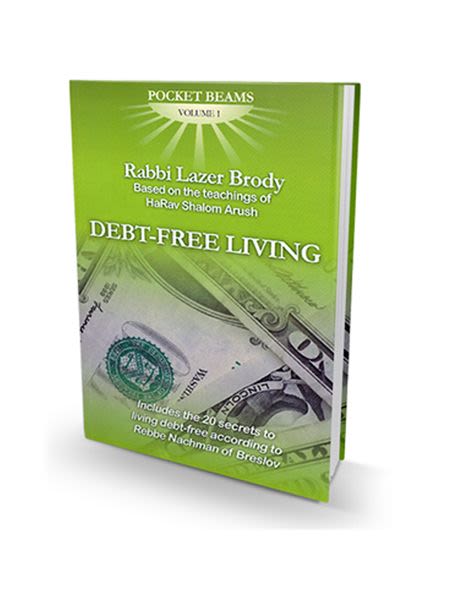
Va’etchanan: Two Dear Friends
Understanding the unity in Hashem's world, we let go of our potentially self-serving connection to Hashem and realize that everything is for the good...

Love and fear. In general, when dealing with our fellow man these terms are mutually exclusive. If I fear someone, love is usually not present. If I feel overwhelmed with love then fear seems inappropriate. It is fascinating that according to the holy Zohar (Book of Mystical writings) these two concepts, vis-a-vis our relationship to Hashem, are like two dear friends that can't be separated.
I would like to share a few thoughts from this week's Torah reading about love and fear. These thoughts are based on the insights of the Malbim (Rabbi Meir Leib Weisser- 1809-79).
When dealing with fear of Hashem, for many of us, our religious-Pavlovian reaction kicks in. Pictures of infernos, purgatory, and other not-so-pleasant realities fill our minds. Although the concept of fear of punishment is a valid expression of one aspect of our relationship with Hashem, there is much more to  serving Hashem with fear that should be incorporated into our lives.
serving Hashem with fear that should be incorporated into our lives.
Actually, the usual translation "fear" doesn't really capture the subtleties of the Hebrew word "yirah". The Hebrew word "yirah", meaning "to fear", is based on the same grammatical root as the word "to see". If we honestly look and "see" what is around us, we will gain an awareness of Hashem's presence and hopefully an ensuing sense of awe and humility. For the sake of ease we translate "yirah" as "fear" but I prefer the word "awe" since it reflects the Hebrew meaning, an awareness of the overwhelming greatness of Hashem.
How do we incorporate this consciousness into our lives? In this week's Torah reading we learn: "This is the commandment, and the decrees, and the laws that Hashem commanded to teach you to perform… so that you will fear Hashem." As opposed to fear of punishment, the verses indicate that awe is the purpose and goal of the performance of Hashem's commandments. By subordinating ourselves to Hashem's will, we actualize the ideas mentioned above and develop a deeper awareness of His presence.
However, whenever internalizing fear and awe of Hashem, we can run into pitfalls. Most of us relate to life as two halves of a whole. Sometimes things are "good" and other times "bad". We want Hashem to maximize the former and minimize the latter. Sometimes our sense of awe can be tainted by our desire to maintain the "good", thus limiting our appreciation of Hashem's providence. But this duality smacks of idolatry, as if the "good" gods are fighting things out with the "bad" gods. As my Rebbe, Rabbi Nachman Bulman OB"M, used to explain, this sort of religious outlook is basically like taking out life insurance. I'll be a good boy, but that means that I should receive the "good" dividends. How do we break out of this religious myopia?
This week's reading includes the creed of Jews throughout the millennium: "Shma Yisrael"- "Hear O' Israel, Hashem is our G-d, Hashem is one." In order to develop a more profound sense that everything comes from Hashem, the awareness that Hashem is one is essential. Understanding that unity helps us realize that ultimately there is no "good" and "bad", only "good". Our lives' occurrences are transformed from being perceived as either blessings or punishments to opportunities for growth. On a practical level this step is not easy to attain, but without it, life is random and often cruel, Heaven forbid.
Once we realize the oneness behind all of Hashem's world, our sense of awe is elevated to a profound feeling of love. We correctly realize that all the situations of this world are expressions of Hashem's eternal love. We are thankful for the past and anxiously await the opportunities of the future, knowing with all our being that the symphony of life, past, present, and future, is under the direction of the Great Conductor. Here too, the Torah gives us specific directives how to develop this feeling. Undoubtedly, the greatest way to sense this love is through the study of Torah. Through learning Torah we develop a deeper sense of the wisdom of Hashem's world and, in turn, our love can flourish.
In short, the development of awe (fear) and love is a interconnected process. The process begins with awe and respect of the Creator which takes the form of performance of HIs commandments. This is the ultimate expression of humility before Hashem. Although we run the risk of performing our deeds to assure us the blessings we want, ultimately we can reach a higher level. Understanding the unity behind Hashem's world and His Torah, we let go of our potentially self-serving connection to Hashem and realize that everything is for the good, everything is an expression of His love. This awareness is best maintained by the study of the holy words of the Torah.
May Hashem grant us that the two dear friends, love and fear, be deeply embedded in our hearts and our minds and find full expression in a constantly developing relationship with our Creator.












Tell us what you think!
Thank you for your comment!
It will be published after approval by the Editor.